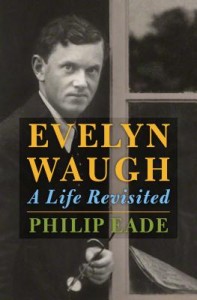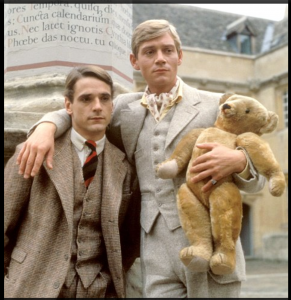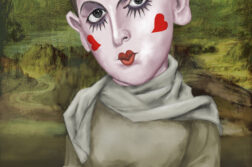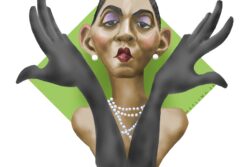 Evelyn Waugh: A Life Revisited
Evelyn Waugh: A Life Revisited
by Philip Eade
Henry Holt and Company
432 pages, $32.
WHEN EVELYN WAUGH died of a sudden heart attack at 62 on Easter Sunday, 1966, his literary reputation was in decline, his work seen as nostalgic and retrograde compared to the issue-oriented social realism of writers then in ascendance (such as Kingsley Amis and Anthony Burgess). However, as journalist Philip Eade argues in his new biography, “revisiting” Waugh to commemorate the fiftieth anniversary of his death, he is now celebrated as one of the greatest English satirical novelists of the 20th century. Graham Greene considered him the foremost English novelist of his generation. Certainly the iconic 1981 television serialization of Brideshead Revisited, often ranked as Waugh’s masterpiece, was a major steppingstone toward a critical re-evaluation of his novels.
However, Eade is more concerned with rehabilitating Waugh’s character than his work, a task that is rather more challenging. Despite having the cooperation of Waugh’s grandson Alexander and access to unpublished family archival material—including Waugh’s passionate love letters to Baby Jungman (an unrequited girlfriend in the 1930s) and a revealing memoir by his first wife—this attempt at a reappraisal is only moderately successful. Waugh may have been a stunning writer, but he was not a terribly nice man.

Born in 1903 to an upper-middle-class home headed by his sentimental father Arthur, a critic and publisher, Waugh was overshadowed by his favored older brother Alec; and for this he hated his father. Arthur thought Alec would be the literary star, but when Alec was expelled from the elite prep school Sherborne for having a romantic entanglement with a younger boy, the more talented Evelyn was forced to attend the less prestigious Lancing. However, he excelled academically and proceeded to Oxford, where he led a dissolute existence, developing a life-long passion for alcohol, eventually graduating with an undistinguished record. According to Waugh’s friend John Betjeman, “everyone was queer at Oxford in those days”—emphatically including Waugh, whose first affair matched him with Richard Pares, later a prominent historian.
His longest relationship was with the gorgeous Alastair Graham, son of a baron, who became the inspiration for Brideshead’s Lord Sebastian Flyte, so much so that twice in the manuscript Waugh accidentally wrote Alastair’s name for Sebastian’s. According to acquaintances, Alastair “had the same sort of features Evelyn liked in girls, the pixie look,” and he sent Evelyn a naked photograph of himself with “his backside pointing seductively toward the camera.” When Evelyn began to turn his attention toward women, Alastair desperately wanted him back.
Evelyn Waugh’s marriage to the beautiful Evelyn “Shevelyn” Gardner, the daughter of a successful Liberal politician, was largely disastrous and short-lived. Perhaps his unenthusiastic proposal—“Let’s get married and see how it goes”—should have tipped her off. Eade says that the two Evelyns lacked bedroom chemistry. In Shevelyn’s memoir, she says that she thought he was “homosexual at the base.” She proceeded to have a very public affair with another man, which humiliated Waugh and was surely a factor in his despairing view of the world, as evidenced in the darker, second half of a novel called Vile Bodies that he wrote during this romantic upheaval. Single again, he had a few other brief affairs with men and women (especially Baby Jungman), and reunited for awhile with Alastair. But this phase ended when Waugh, looking for respectability and entrance into aristocratic circles, decided to focus only on women and became, in Alastair’s estimation, a gossipy, boring snob. After obtaining an annulment in 1936, he married Laura Herbert, an eighteen-year-old Catholic daughter of an explorer, in the following year.
Eade glosses over in a scant few pages the major event of Waugh’s life, his conversion to Roman Catholicism in 1930 following his divorce and his rejection of the wild 1920s lifestyle of parties and decadence that he’d led with his “bright young things.” Why he converted to Catholicism and how it shaped his later novels is largely unexamined here. His marriage to Laura lasted until his death and produced seven children (a daughter died at birth), probably because they demanded little of each other, with Laura raising the family and overseeing the household so that Waugh could write and travel (sometimes to get away from his kids, whom he found irritating and largely ignored). Through all his personal dramas, Waugh wrote at an astonishing pace. His first published novel, Decline and Fall (1928), an uproarious bestseller, was followed by Vile Bodies in 1930. Then came Black Mischief in 1932 and A Handful of Dust, a minor masterpiece, in ’34. All were witty, dialog-heavy satires of the British upper class, of which Evelyn craved to be a part yet simultaneously skewered for its self-serving foibles.
He wrote the more serious Brideshead Revisited, about a declining aristocratic family, during a break from his military service in the early 1940s, and it became his biggest success. It made him rich, though he remarked with characteristic acerbity: “My book has been a great success in the U.S. which is upsetting because I thought it in good taste and now I know it can’t be.” Waugh’s brave war experiences, as well as his contempt for his military superiors, were on display in the Sword of Honor trilogy, written in the late 1950s–early 1960s, which some critics deem the best novel to emerge from World War II. There had been some controversy over whether Waugh and his commanding officer during Britain’s disastrous retreat from Crete had left too early, leaving many troops behind at the mercy of the Germans, but Eade seems to acquit them of any dishonorable conduct.
Following the War, a trip to Hollywood to discuss the possible filming of Brideshead resulted in his acidic lampoon of Forest Lawn Cemetery in 1948’s The Loved One. Waugh entered a long period of physical and emotional decline, suffering a nervous breakdown precipitated by a combination of prescription drugs, sleeping pills, and alcohol that led to his hallucinatory novel The Ordeal of Gilbert Pinfold in 1957. As the end grew near, having retreated into the life of a country squire, he was deaf, alcoholic, depressed, and thoroughly disenchanted with the modern world, despising Britain’s welfare state and the Second Vatican Council’s reforms of the Catholic Church, especially the introduction of the vernacular into the mass. In a series of BBC television interviews, he was accused of snobbery, misanthropy, and racism. Eade thinks he deliberately parodied himself, playing the provocateur to cover up his boredom and disillusionment. He could be a kind, caring friend, expressing “deep humanity behind a forbidding front.” But he could also be a mean bully with a cruel streak that earned him many enemies.
Eade barely discusses Waugh’s literary output, almost minimalizing its importance, a strange editorial choice because Waugh’s friendships and life events were so intertwined with his writing that even his nonfiction has autobiographical elements. As with many English biographies, the amount of name-dropping is stupefying, and the dry, detached style of writing doesn’t exactly make for a page-turner. Even with all the supposedly new material, there is nothing revelatory here that hasn’t been discussed in previous biographies. While far from the definitive biography—that title probably belongs to Martin Stannard’s two-volume opus, despite its overall negative assessment of Waugh—Eade is more forthcoming about Waugh’s early homosexuality than previous biographers. Still, he doesn’t offer a convincing explanation as to why Waugh abandoned relations with men. Clearly his reactionary Catholicism played a role, but the causality is unclear.
LGBT readers may be struck by how gay Waugh seemed in his attitudes and mannerisms throughout his life. Undoubtedly a gay writer (Eade is straight) would be better equipped to discern his campy wit and to explain how his ambivalent sexuality was creatively channeled into his work. Such an analysis might conclude that Waugh was ahead of his time, what with his snarky sense of irony and postmodern skepticism, qualities that have made his work more popular today than ever.
Brian Bromberger is a freelance writer who works as a staff reporter and arts critic for The Bay Area Reporter.






